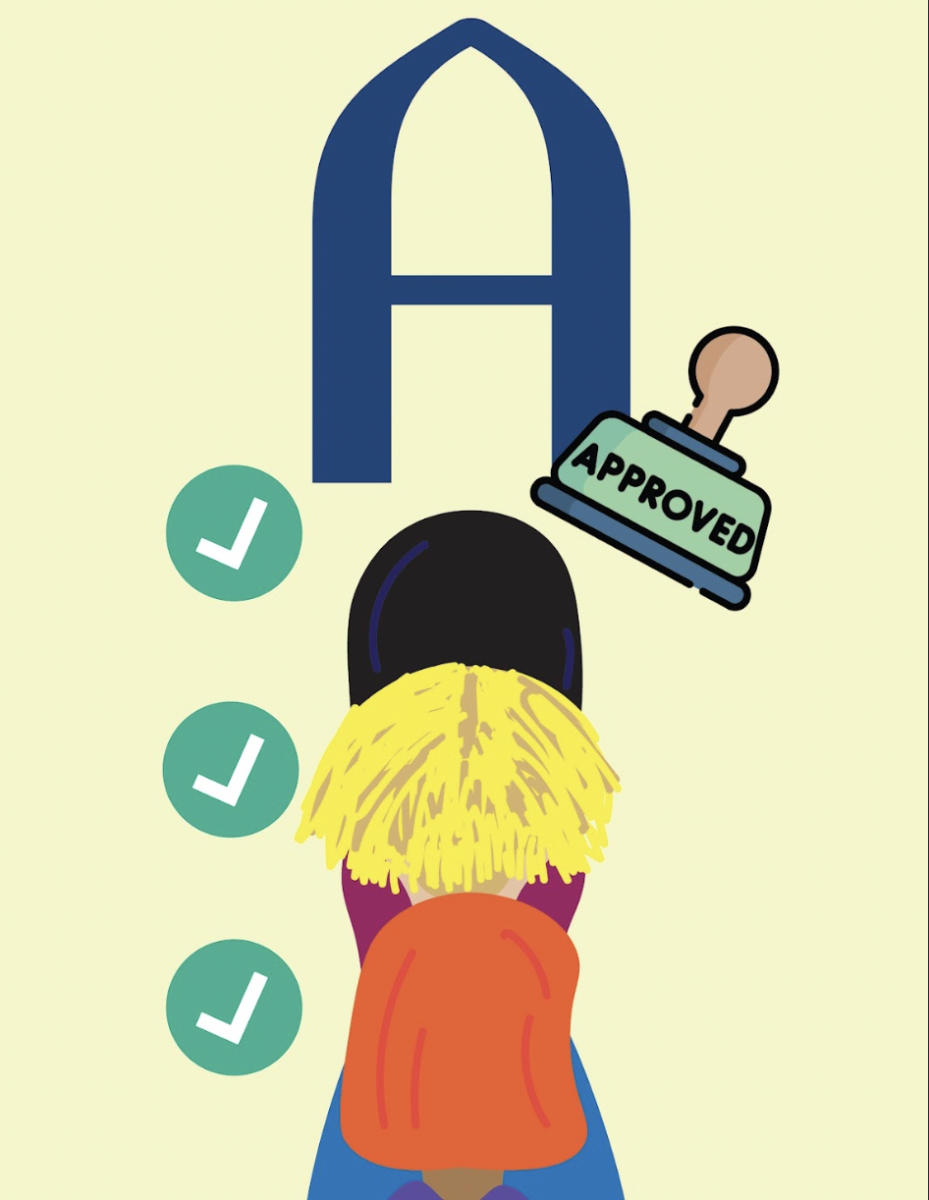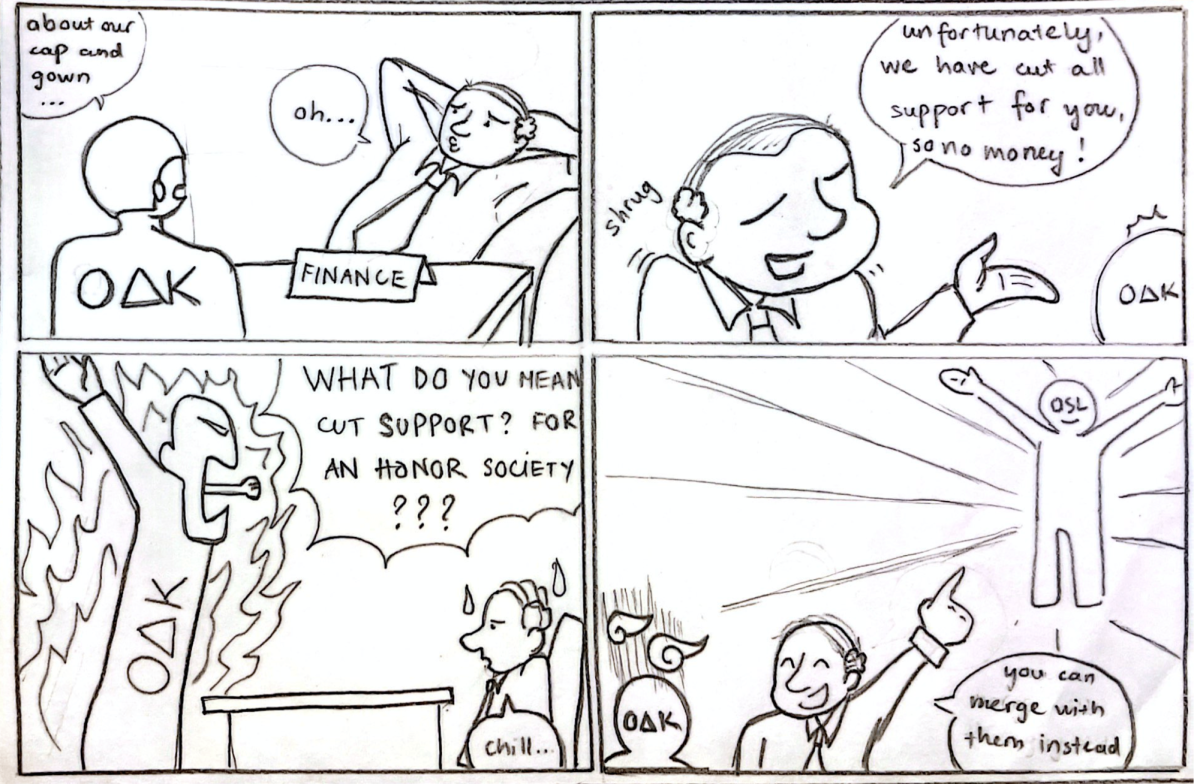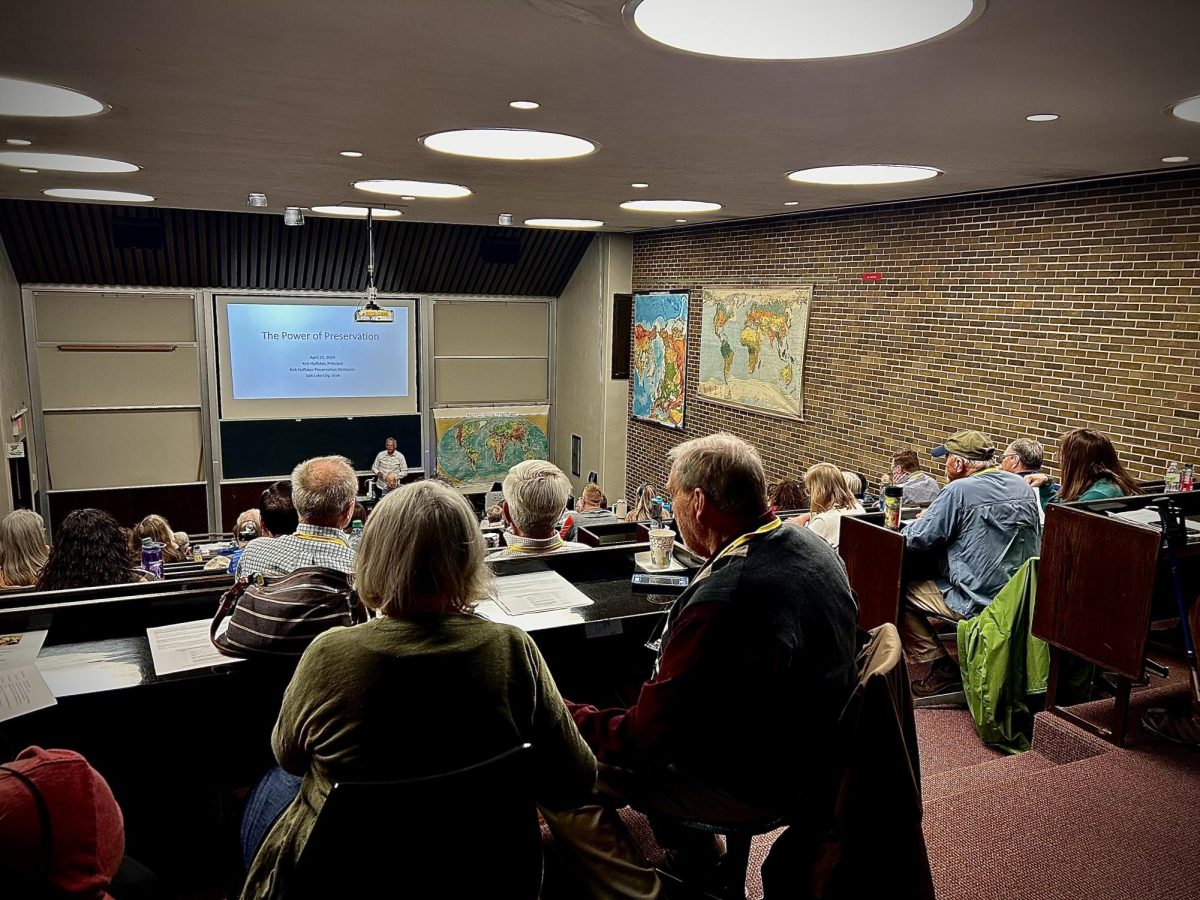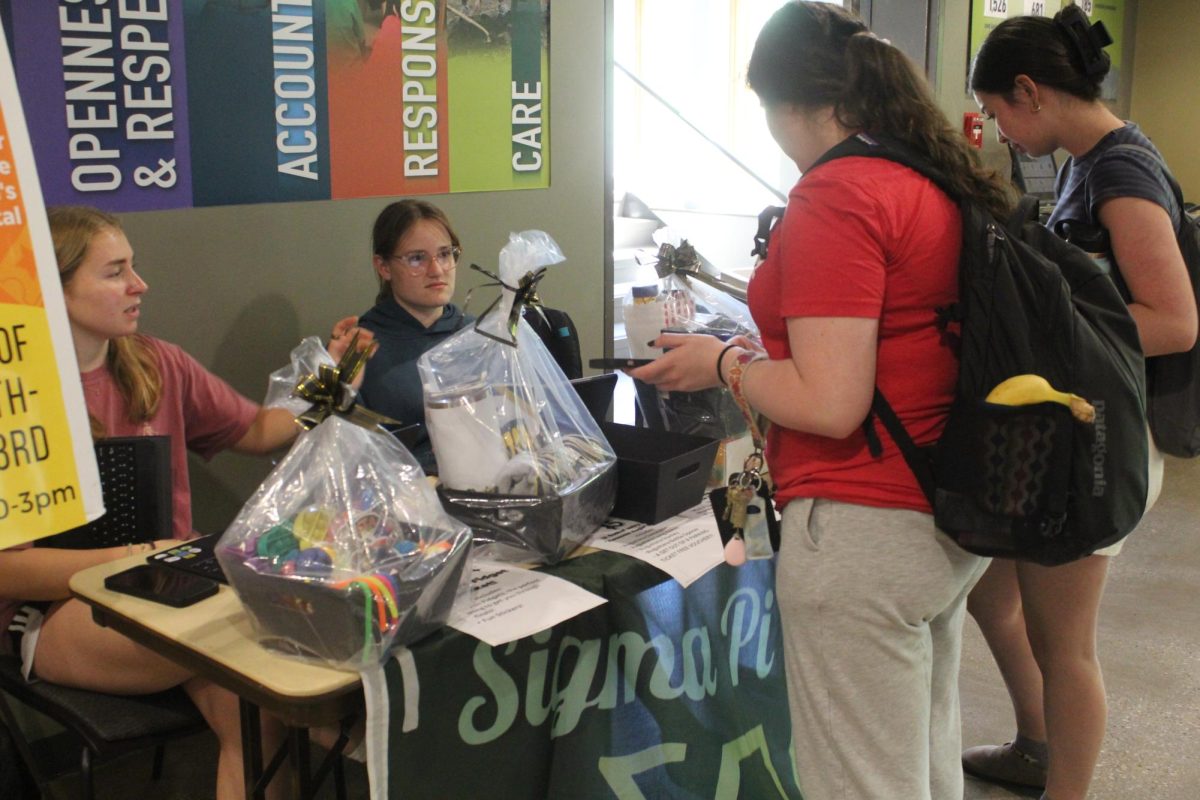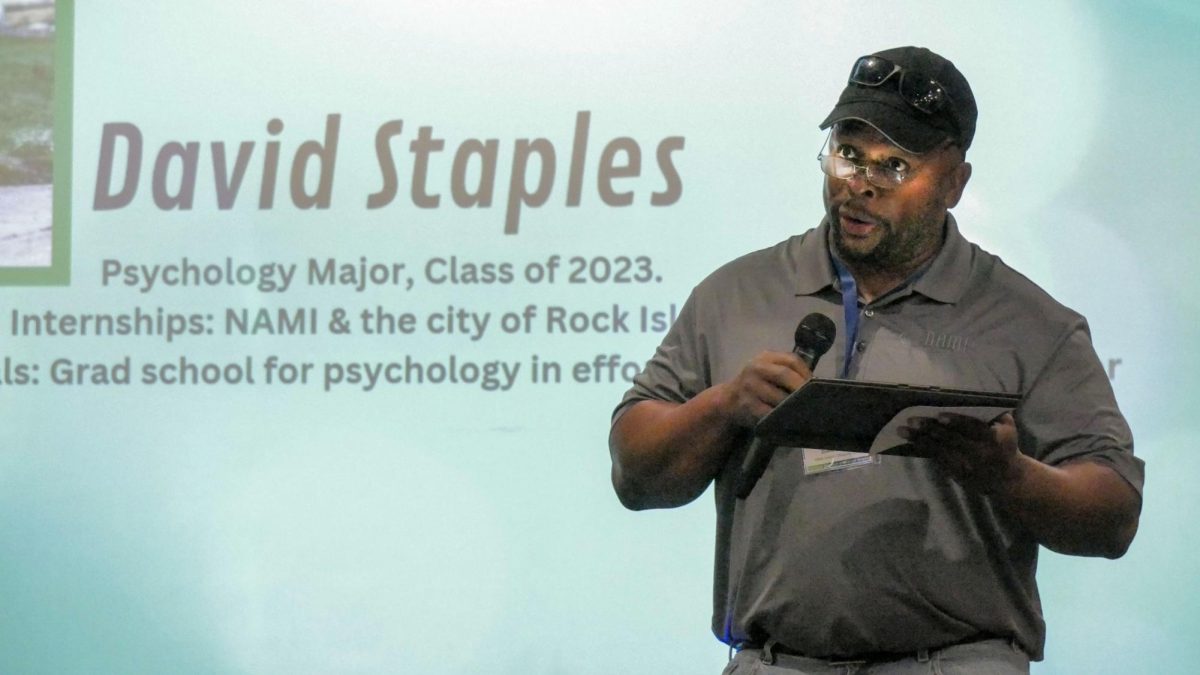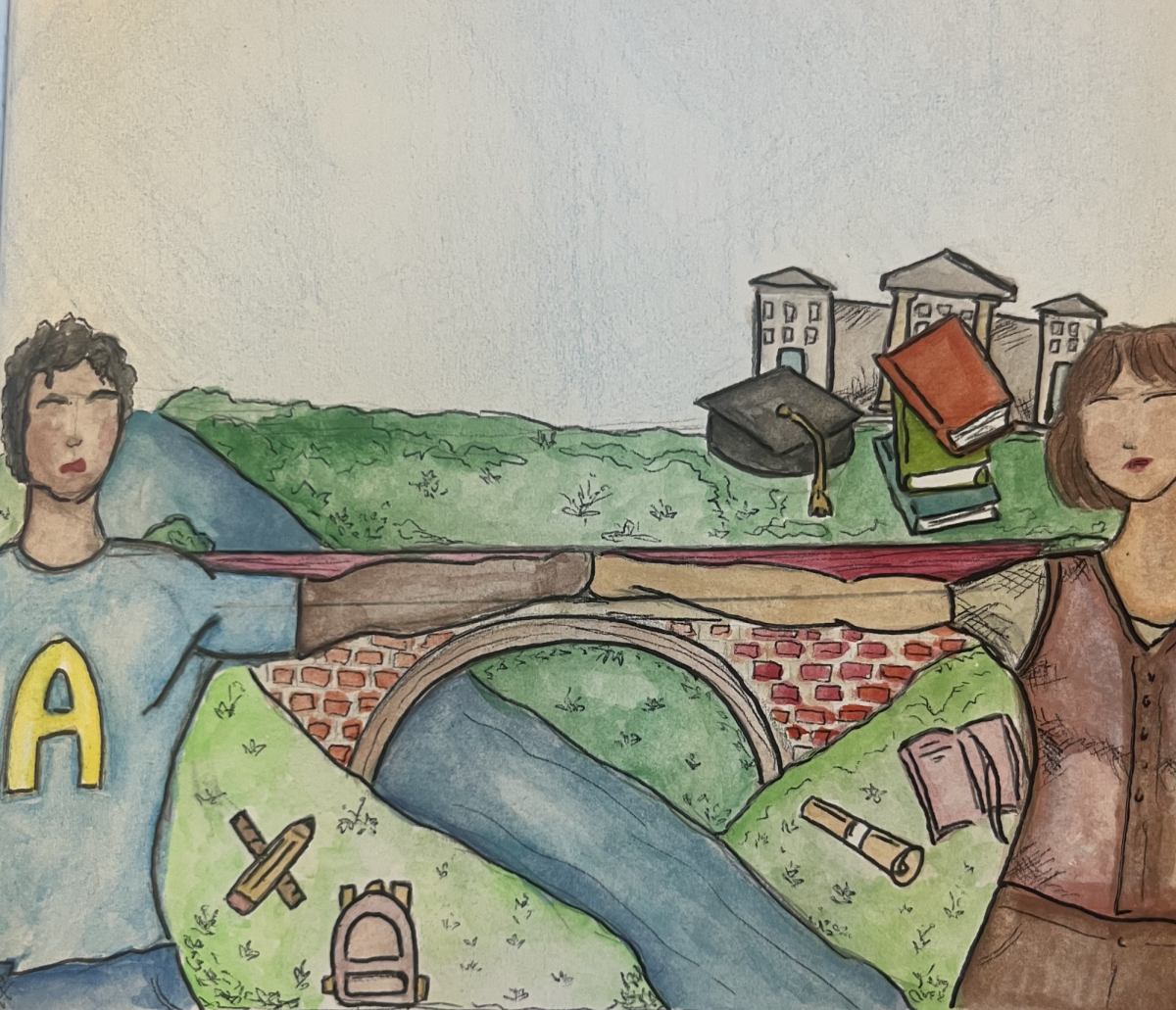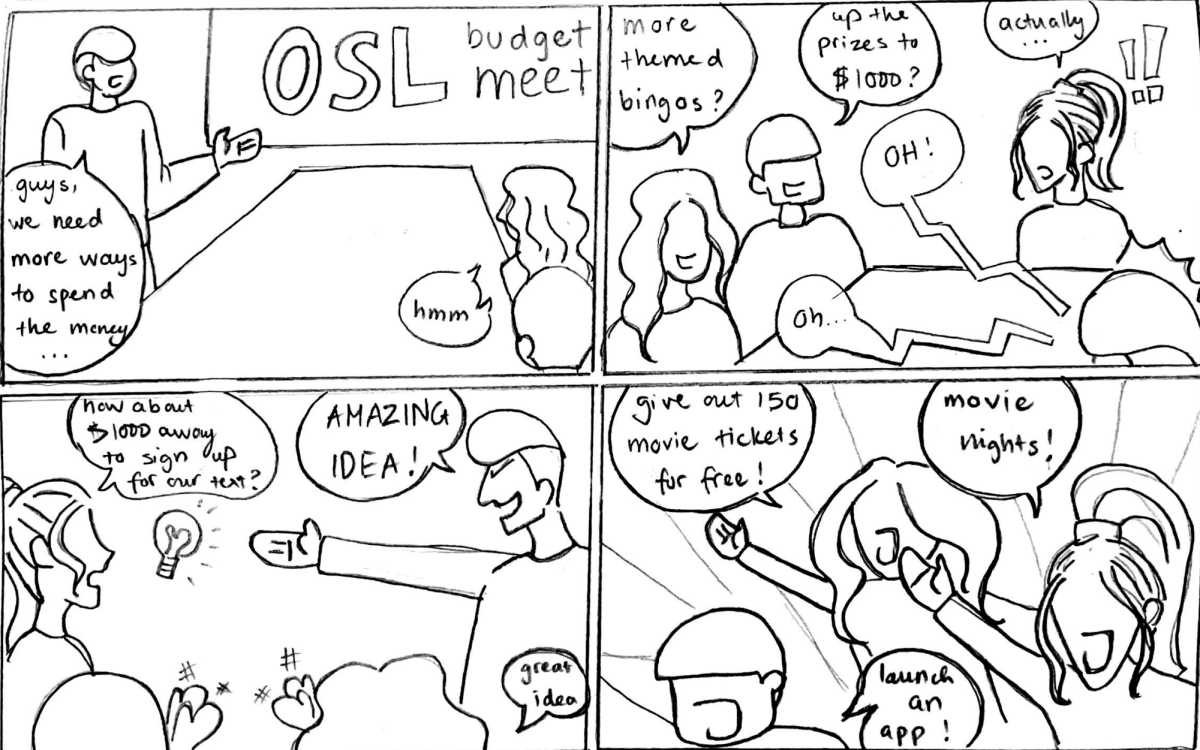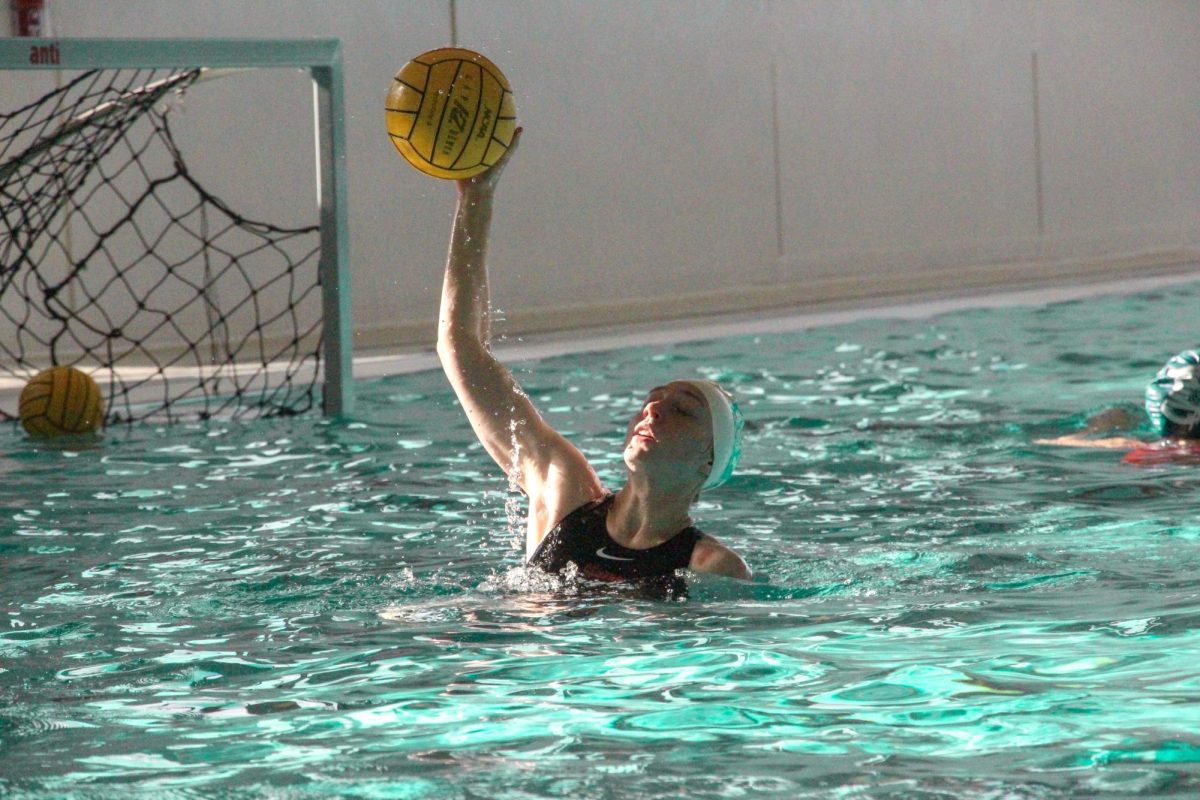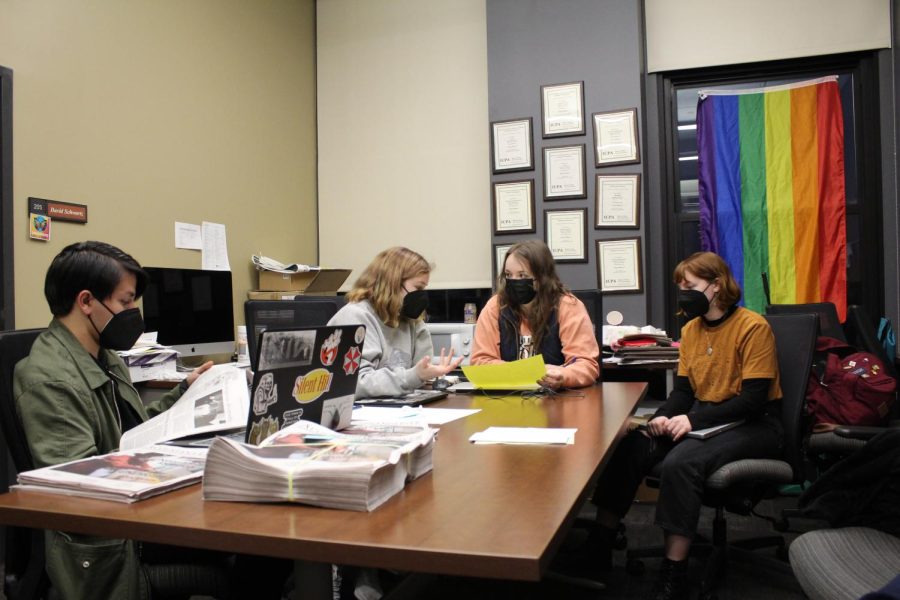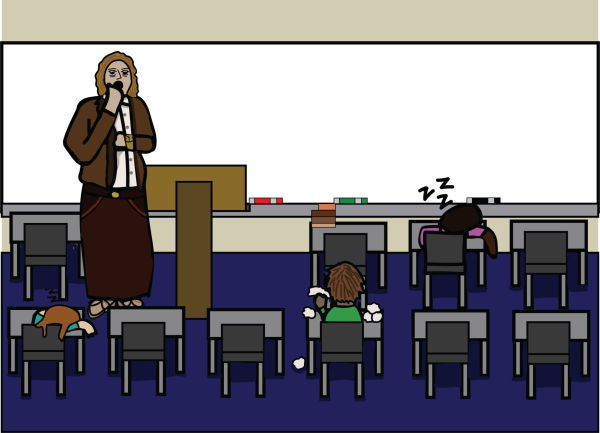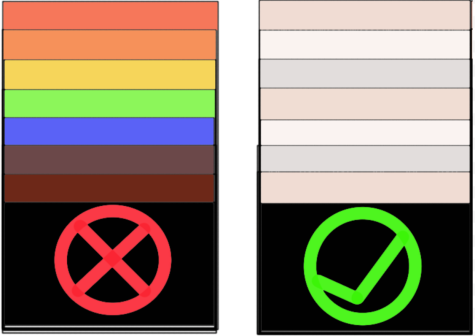Balancing money and morality
Co-Editor-in-chief Olivia Doak listens to Managing Editor Carly Davis’ idea for the graphic design on March 14 at Old Main.
May 13, 2022
We all know that journalists are not in it for the money, and a college newspaper is no different.
You don’t work at the Observer so that you can pay rent or afford groceries. We pay reporters by commission for 2 hours of work a week, and at the set Augustana hourly wage, that amounts to $18.50 per week, or $37 a paycheck. The same goes for our photographers and designers.
At nearly $19 per week, it’s clear our staff are not here to get rich. It’s also not uncommon for reporters, designers or photographers to put in more than 2 hours a week into their work.
Because if someone wants to produce exceptional, award winning, portfolio-level work, it’s almost impossible not to invest more than 2 hours of time into an assignment.
More often than not, our editorial team also puts in more hours than their pay reflects. Head editors are paid for four hours a week and assistants for three. Both get an extra hour of pay if they decide to write in any given week.
Hopefully our editors are not working overtime every week, but many of them go above and beyond and put in those extra hours.
The reality of working for a newspaper is that there are constant problems that need to be solved, and some problems take a lot of extra time and energy on behalf of the editors.
So is it wrong that our staff are not paid more?
For the past two years as co-editor-in-chief of the Observer, I’ve struggled with this question. As a student worker myself, I understand the life of a broke college student. We need that paycheck to be as big as possible just to make it week to week.
I desperately want to pay my workers a salary that reflects the amount of time and effort they put into their work. But the reality is that this would be
impossible.
First of all, we simply don’t have the budget for that. We’d run out of money to operate in the first two months of school and wouldn’t put out a single print issue all year.
The fact of the matter is that when COVID-19 hit, it took a toll on our budget, just like every other area of campus. We were all forced to take a small pay cut, including myself and my co-editor.
To keep that pay cut as small as possible, we also had to sacrifice the amount of print editions we put out. So starting my junior year, we went from having weekly print editions to printing only five times a year.
Another reason a pay increase would be impossible is because people put different amounts of effort and time into their work.
Some people get their quotes, draft their piece and are finished. But others do their interviews with care and invest time writing a high-quality article.
Even though this may be the reality, I can’t pay people in the same position a different wage. That also isn’t fair.
I also have people on staff that do such an exceptional job that I wish I could give them a raise. Even though the idea is somewhat comical, I am so thankful for my staff that go above and beyond.
I just wish I could reciprocate that appreciation by putting a larger paycheck in their pocket.
The time spent pitching ideas, interviewing, designing, taking photos, fact-checking, drafting, editing, revising and rewriting is intensive.
It’s almost impossible for our staff to produce the high quality of work that they do without investing more time than they’re paid for weekly.
At the same time, it’s also somewhat of a comfort knowing that our staff are not solely in it for the money.
It means that we have people who are passionate about journalism. It means we have people that are eager to learn and improve their skills.
Our staff are in it for the right reasons — they’re not here to do a meaningless job simply to collect a paycheck.
They’re here at the Observer to provide journalism as a public service to our campus community.
